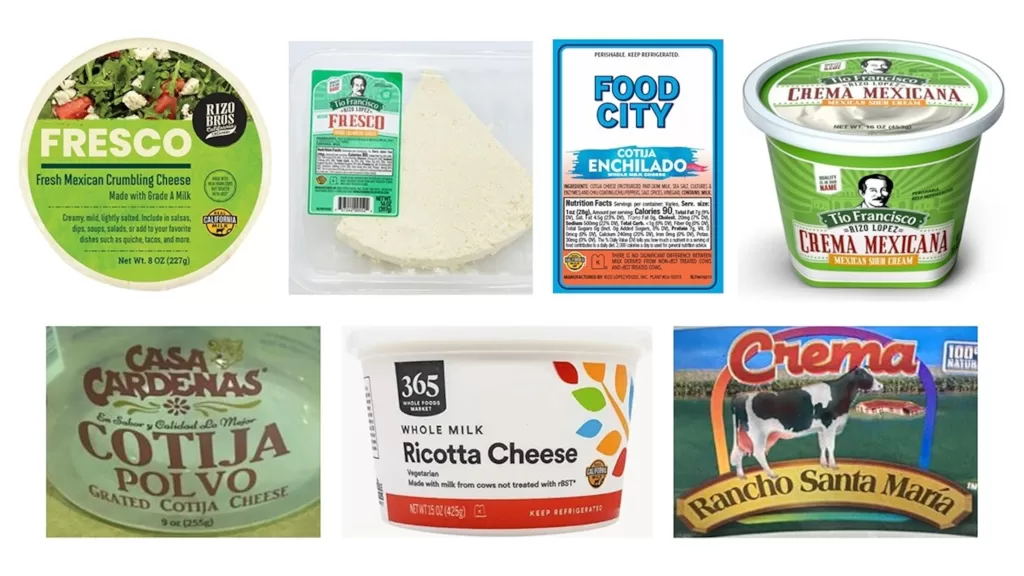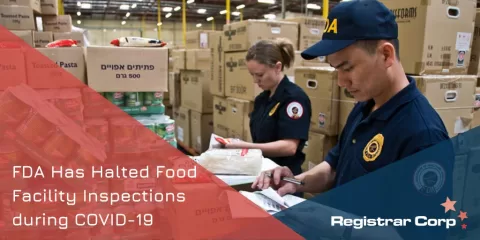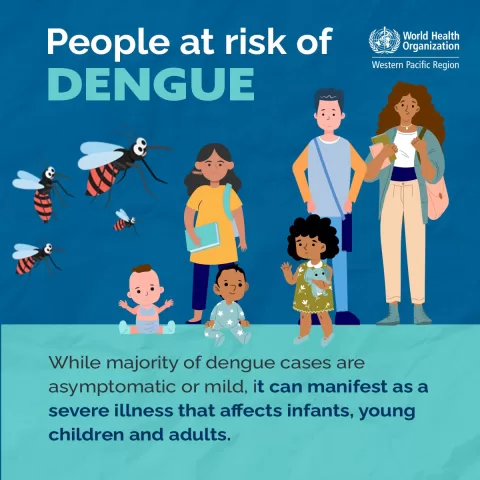The Listeria outbreak in 2024 has raised significant health concerns across the nation, especially among vulnerable populations. Recent investigations have linked the outbreak to contaminated frozen supplement shakes, which were primarily distributed to nursing homes and long-term care facilities. The Centers for Disease Control and Prevention (CDC) issued a food safety alert after confirming 38 cases of Listeria monocytogenes infection involving patients who often required hospitalization. Tragically, the outbreak has resulted in multiple fatalities, highlighting the urgent necessity for heightened food safety measures. As health officials delve deeper into this alarming situation, it’s crucial to stay informed about the risks associated with these products, particularly as consumers should be aware of the potential Listeria risk connected to frozen shakes in care settings.
In recent months, a significant public health concern has emerged regarding a widespread Listeria monocytogenes infection linked to specific dietary products. This incident revolves around freezer-stored nutritional shakes often provided in healthcare facilities, aiming to enhance patients’ diets. With a growing number of reported illnesses since 2024, federal authorities, including the CDC, have raised alarms about their consumption, particularly among nursing home residents. Authorities continuously monitor each case, urging those in high-risk categories to exercise caution with these frozen supplement options. As investigations progress, understanding the potential implications of this Listeria outbreak remains essential for safeguarding public health.
Understanding Listeria Monocytogenes Outbreaks in 2024
In 2024, the multistate Listeria monocytogenes outbreak has become a significant public health concern, particularly affecting vulnerable populations in long-term care facilities. The Centers for Disease Control and Prevention (CDC) has reported a staggering number of infections, underscoring the need for increased public awareness. Pregnant women, the elderly, and those with weakened immune systems are particularly at risk from this bacterium, which is known for causing severe, sometimes fatal, infections. It’s crucial for caregivers and facility operators to stay informed about food safety guidelines and potential risks associated with Listeria infections.
This year’s outbreak is linked to frozen supplement shakes, which have been a staple in some nursing homes. The CDC’s food safety alert detailed concerning statistics, including cases from various states where individuals required hospitalization. Understanding the connection between certain food products and Listeria outbreaks is vital to preventing future illnesses, urging health officials and consumers alike to exercise caution with frozen foods, especially those served in healthcare settings.
Frozen Supplement Shakes Recall and Its Implications
The recent recall of Lyons ReadyCare and Sysco Imperial frozen supplement shakes sheds light on the potential dangers of Listeria monocytogenes in food products. Following the revelations from the FDA about contamination at Prairie Farms Dairy, many nursing homes have ceased serving these products to ensure the safety of their residents. This recall highlights the importance of vigilant monitoring of food supplies in healthcare settings, where patients’ vulnerabilities necessitate extra precautions against foodborne pathogens.
While recalls are necessary to safeguard public health, they also bring to light the importance of maintaining rigorous testing and quality control in food manufacturing. As seen in this outbreak, environmental testing revealed connections between clinical cases and the strains present in food facilities. For caregivers and health officials, understanding these connections can aid in reinforcing safety protocols to prevent future Listeria infections tied to improperly handled or contaminated food products.
CDC Food Safety Alert: Essential Information for Care Facilities
The CDC’s food safety alert regarding the Listeria outbreak serves as a crucial reminder for care facilities to implement robust food safety practices. With over thirty cases reported and an alarming percentage requiring hospitalization, it’s imperative for caregivers to educate themselves about the risks of Listeria monocytogenes. The alert details the symptoms of Listeria infections and encourages facilities to monitor their food sources closely, ensuring that products distributed meet strict safety regulations.
Moreover, the alert emphasizes the necessity of collaboration between health care providers, nutritionists, and suppliers to ensure the health and safety of residents. It is paramount that long-term care facilities stay updated on recalls and food safety guidelines to create a secure eating environment, particularly for those most at risk of severe complications from Listeria infections.
The Nursing Home Listeria Infection Crisis
The nursing home Listeria infection crisis has prompted a reevaluation of food sourcing and safety protocols within care facilities. With many patients being elderly and more susceptible to severe infections, investigations have shown a direct link between food served at these facilities and rising infection rates. State health officials are investigating how Listeria monocytogenes infiltrated nursing homes, prompting calls for more thorough food safety regulations in health care settings.
Government agencies are now focusing on tightening regulations concerning food supplies within nursing homes. This crisis highlights the need for ongoing surveillance of foodborne pathogens and the necessity for swift responses to emerging threats in public health. Long-term care facilities are encouraged to remain proactive, ensuring that all food served meets high safety standards to protect residents from potential outbreaks.
Frozen Shakes Listeria Risk: A Growing Concern
The association between frozen shakes and Listeria risks has emerged as a troubling trend in recent healthcare discussions. As more cases of Listeria monocytogenes infections have been traced back to frozen supplement shakes served in nursing home settings, health officials are calling for increased scrutiny of these products. The frozen shake incident underscores the need for enhanced food safety measures in the production and distribution of dietary supplements.
For consumers and healthcare administrators alike, understanding the risks associated with dietary supplements, especially those distributed in frozen forms, is essential. It is vital for nursing homes and similar facilities to ensure the products they serve are not only nutritious but also safe from contamination by bacteria like Listeria. Ongoing education and awareness campaigns are necessary to mitigate these risks effectively.
Tracing the Outbreak: Environmental Samples and Findings
Tracing the outbreak of Listeria monocytogenes has become an essential part of understanding how contaminated food products affect public health. In November 2024, the FDA’s investigation unveiled critical evidence linking environmental samples from Prairie Farms Dairy to the strains found in infected patients. This underscores the importance of traceback investigations that can reveal food safety vulnerabilities in production facilities.
The process of collecting and analyzing environmental samples allows health officials to connect the dots between food sources and outbreaks. These findings highlight the critical need for continuous environmental monitoring in food manufacturing plants, aiding in the swift identification and control of foodborne diseases that can result in health crises.
The Role of the FDA in Preventing Future Listeria Outbreaks
The Food and Drug Administration (FDA) plays a pivotal role in regulating food safety, particularly concerning preventable outbreaks such as Listeria monocytogenes. With the recent spate of infections linked to frozen supplement shakes, the FDA has intensified its efforts to ensure that food manufacturers adhere to stringent safety protocols. The agency’s proactive measures are crucial in monitoring food supplies and preventing potentially hazardous products from reaching vulnerable populations.
Through initiatives that include product recalls and rigorous inspections, the FDA is committed to maintaining the well-being of the public. Ongoing collaboration with state health departments and the CDC is imperative for addressing emerging health threats and ensuring that unsafe products do not enter the consumer market, ultimately safeguarding the health of populations at risk from Listeria infections.
Key Takeaways from the 2024 Listeria Outbreak Investigations
The 2024 Listeria outbreak investigations have yielded several important takeaways for public health officials and care facilities. As the number of reported cases continues to rise, the necessity for vigilant food safety practices becomes ever clearer. Understanding the links between specific food products, like frozen shakes, and Listeria infections can serve as a preventive measure for future outbreaks and protect vulnerable populations.
Health officials stress the importance of education and awareness campaigns about Listeria risk factors, especially among high-risk groups. These efforts should include comprehensive guidelines for facilities serving meals to ensure that every precaution is taken to protect the residents’ health. Optimizing safety practices can drastically reduce the chances of foodborne illnesses reoccurring and maintain a safe environment for all.
The Impact of Listeria Outbreaks on Public Health Systems
The impact of Listeria outbreaks on public health systems is a growing concern as infections highlight significant gaps in food safety regulations and preparedness strategies. Each outbreak not only highlights the immediate health risks to affected individuals but also strains public health resources as investigations and response efforts ramp up. Understanding how to improve these systems is essential for minimizing the long-term effects of such outbreaks.
As public health agencies strive to mitigate Listeria outbreaks, they must analyze their response strategies and implement changes based on past experiences. This includes enhancing collaboration between federal, state, and local health authorities and ensuring that robust food safety standards are upheld across various sectors. By learning from the current outbreak, public health systems can work towards a more effective response to future Listeria challenges.
Frequently Asked Questions
What is the Listeria outbreak 2024 related to frozen supplement shakes?
The Listeria outbreak 2024 has been linked to frozen supplement shakes, primarily consumed by residents in long-term care facilities. This outbreak has led to numerous illnesses and fatalities, with health officials advising caution regarding these products.
What products are affected by the Listeria monocytogenes outbreak in 2024?
The 2024 Listeria monocytogenes outbreak has affected frozen supplement shakes produced by Lyons ReadyCare and Sysco Imperial brands. These products were recalled after it was found they were linked to multiple cases of Listeria infections.
How many cases have been reported in the Listeria outbreak 2024?
In the Listeria outbreak 2024, the CDC reported a total of 38 cases across 21 states, with the majority of affected individuals requiring hospitalization due to the severity of the illness.
What steps are being taken in response to the Listeria outbreak 2024?
In response to the Listeria outbreak 2024, the CDC and FDA are conducting ongoing investigations, including product recalls and environmental testing at the manufacturing facility linked to the outbreak.
Who is most at risk during the Listeria outbreak 2024?
The most at risk during the Listeria outbreak 2024 are vulnerable populations such as pregnant women, individuals aged 65 and older, and those with compromised immune systems, as Listeria infections can lead to severe health consequences.
What does the CDC food safety alert say about the Listeria outbreak 2024?
The CDC food safety alert regarding the Listeria outbreak 2024 highlights the link between the outbreak and frozen supplement shakes, urging consumers and health facilities to check for affected products and report any illnesses.
What is the relationship between nursing homes and the Listeria outbreak 2024?
Nursing homes have been significantly impacted by the Listeria outbreak 2024, with many infected individuals residing in these facilities. Health officials suspect that the frozen supplement shakes were a contributing factor to the infections.
What should consumers know about the frozen shakes Listeria risk?
Consumers should be aware of the Listeria risk associated with the frozen shakes recalled during the outbreak in 2024, especially if they are nursing home residents or belong to high-risk groups. Safety measures include avoiding affected products and reporting any symptoms.
How does the Listeria monocytogenes outbreak affect long-term care facilities?
The Listeria monocytogenes outbreak poses a serious threat to long-term care facilities, as many residents have been affected. The outbreak underscores the need for strict food safety practices and monitoring of food sources provided to vulnerable populations.
What actions did Lyons Magnus take regarding the Listeria outbreak 2024?
Lyons Magnus recalled several flavors of frozen supplemental shakes linked to the Listeria outbreak 2024, citing the risks associated with their products and prioritizing consumer safety following the health alerts.
| Key Points | Details |
|---|---|
| Outbreak Overview | A multistate Listeria monocytogenes outbreak linked to frozen supplement shakes has resulted in 12 fatalities since 2018. |
| Affected Population | Primarily affects nursing home residents, particularly those aged 65 and older, pregnant women, and immunocompromised individuals. |
| Reported Cases | 38 cases reported across 21 states, with nearly all patients requiring hospitalization. |
| Investigation History | Previous investigations since 2018 have not pinpointed a specific source until now. |
| Recent Developments | The FDA’s recent trace-back investigations linked the outbreak to frozen shakes from Lyons ReadyCare and Sysco Imperial. |
| Environmental Samples | Positive environmental samples from the Prairie Farms Dairy facility link to the outbreak strain. |
| Voluntary Recall | On February 22, Lyons Magnus recalled products made at the Prairie Farms Dairy facility. |
Summary
The Listeria outbreak 2024 has emerged as a significant public health concern, leading to fatalities linked to contaminated frozen supplement shakes in long-term care facilities. Ongoing investigations by the CDC and FDA have finally established a connection between these products and numerous reported illnesses. Health officials are urging facilities to cease the use of the implicated brands to prevent further infections. Awareness and preventive measures must be prioritized, especially for at-risk populations who are most susceptible to severe infections.
The content provided on this blog (e.g., symptom descriptions, health tips, or general advice) is for informational purposes only and is not a substitute for professional medical advice, diagnosis, or treatment. Always seek the guidance of your physician or other qualified healthcare provider with any questions you may have regarding a medical condition. Never disregard professional medical advice or delay seeking it because of something you have read on this website. If you believe you may have a medical emergency, call your doctor or emergency services immediately. Reliance on any information provided by this blog is solely at your own risk.








